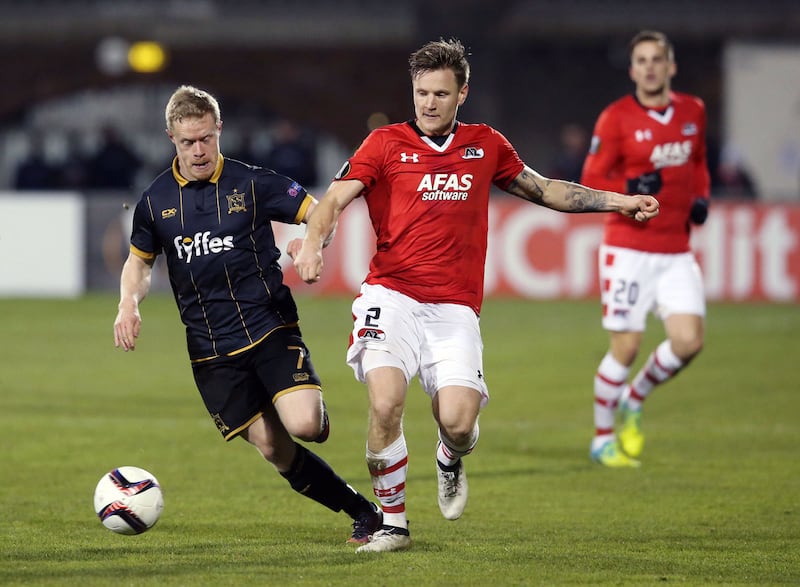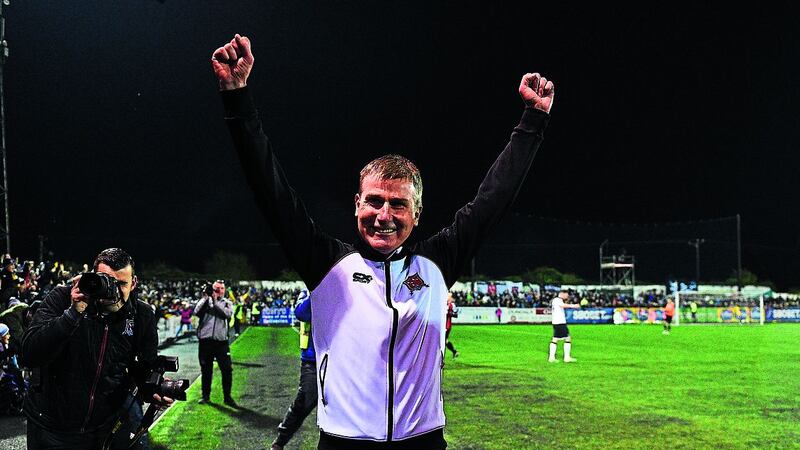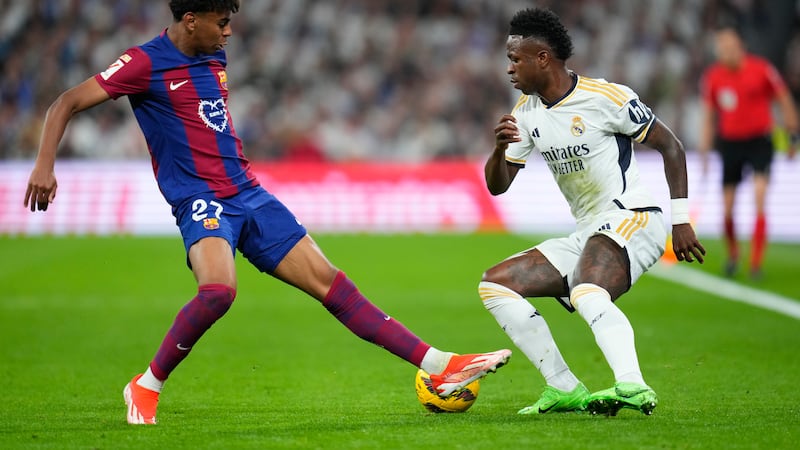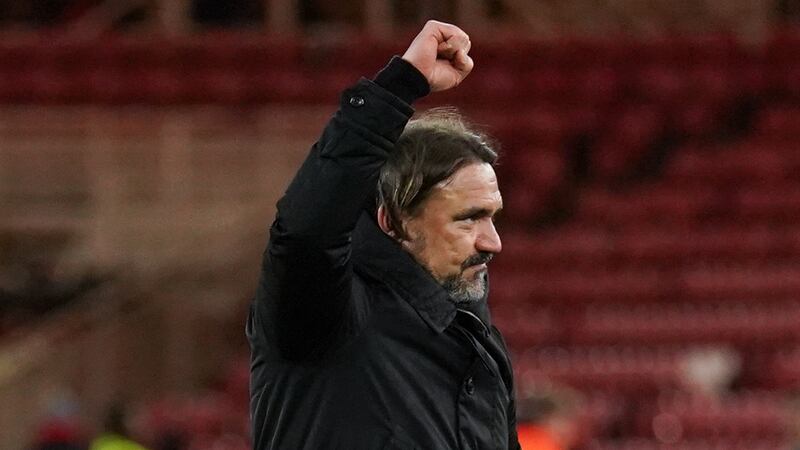"Last week, the publication of the Chilcot Report prompted a great debate over whether Tony Blair should face criminal charges for War Crimes during the invasion of Iraq. Following the referendum, Prime Minister David Cameron opted to resign in the aftermath of the UK’s decision to leave the European Union.
"In 2011, whilst managing Derry City, I remember vividly the scenes in Derry when after years of whitewash and enquiries David Cameron unreservedly apologised for the murder of civilians by the British Army on Bloody Sunday… The fact that a Conservative Prime Minister would make such a prompt, forthright, unequivocal apology gained David Cameron huge respect in Derry." - Stephen Kenny’s programme notes on July 13 2016 ahead of Dundalk’s Champions League Qualifier against FH Hafnarfjordur.
Stephen Kenny’s outlook on the world extends beyond the technical area or training ground and, after sitting down with the Dundalk boss, Brendan Crossan finds out how he picks out lessons from all walks of life in his quest to find an edge...
STEPHEN KENNY sits across the table in Kennedy’s pub, a mere corner-kick away from Oriel Park.
It’s a quiet Thursday evening, with a handful of locals in the place. One thing you learn quickly about the Dundalk manager is that he doesn’t rush in answering questions.
So during this hour-long interview with The Irish News, you accept - and in a strange way - embrace the pauses. It’s as if he’s debating each question in his own head before responding.
It’s not that he’s guarded or searching for the dry land of some well-worn clichés. He’s the opposite, in fact, for he’s tackled bigger subjects than football. The 44-year-old Dubliner has caused a few ripples with his match programme notes.
Rather than go through the mind-numbing exercise of welcoming Dundalk’s opponents and thanking the sponsors in his match programme address, he regularly spurns convention and takes a leftfield approach. He doesn’t believe in ghost-writers and insists on writing his own programme notes.
Prior to the club’s Champions League Qualifier against Icelandic outfit FH Hafnarfjordur - whom Dundalk knocked out on the away goals rule - he wrote about the Chilcot report and commended former British prime minister David Cameron for issuing an apology for the injustices of Bloody Sunday in Derry.
“I’m just writing about what’s relevant, maybe, in the week in question and connecting it with what we’re doing sometimes and trying to see a connection or trying to make a point,” he says across the table.
“I’m not trying to be deliberately controversial or point-score or show off. It’s how you connect with your supporters, if they read your programme notes. I insist on writing my own, but that’s not to say I’ve any great writing skill, but that’s just the way I’ve done it. I’m a nightmare for editors for deadlines [laughing]."
“Listen,” he adds, “some of them are pretty average as well. I write things that interest me, you know? It’s about the value of community and the impact a team can have on a community. It can’t be underestimated.
“You seen it with Derry in ’06 when we had that European run. We flew into Derry airport and there were TV crews and crowds of people. The whole city was taken over. This is obviously greater [with Dundalk], but to go to the Pairc des Princes [to play Paris Saint Germain] and bring 5,000 supporters to Gretna… and win 5-1 and Gretna were the favourites.
“So that captured the imagination in a way that domestic trophies can’t. European results seem to resonate with people who don’t necessarily follow football. And that’s 10 years ago.”
These are sentiments you wouldn’t normally associate with a football manager. Kenny strikes you as a romantic, a kind of footballing altruist with a strong social conscience. He would restore your faith in the infinite possibilities of a community and the crucial role a football team can play in raising its collective self-esteem.
With a palpable degree of bashfulness, Kenny says: “I try not to inflict my political views on anybody. I would just make observations and let people draw their own conclusions - not that I have any ambitions in that regard.
“The former Louth GAA manager [Peter Fitzpatrick] became a TD. I’m not interested in that… [But] You can only be influenced by life itself and what’s around you - things like social inequalities.”
Members of the Irish media would have to travel far to find a more mature relationship than the one they share, and enjoy, with the former Derry City manager.
A couple of months ago, just as one of his press huddles was about to conclude, Kenny wanted to address something Enda McNulty had said in the media around the same time.
McNulty had remarked that, in order for Irish players to remain focused during games, they should not celebrate goals and resist interacting with the crowd. Although McNulty’s remarks had nothing to do with Dundalk’s Europa League clash with AZ Alkmaar the following evening, Kenny was slightly niggled by the former Armagh GAA player’s sentiments.
“I can see from an area of concentration after you score, I can see the validation in it but, if you take away the joy, there is nothing left,” he argues.
“What’s left? Do you know what I mean? To score a great goal in a great stadium, you have to celebrate - that’s why people go, they want to share in the joy with the players and to have that connection. They want to celebrate, they want to enjoy that. I don’t mean a pre-rehearsed celebration, I mean just natural joy.”
Of course, everything Stephen Kenny says these days has a little more added value. After all, he’s just led Dundalk to their third successive league title, while the club were denied back-to-back league and cup doubles at the beginning of November, losing the FAI Cup final to Cork City in desperately cruel circumstances.
For the Lilywhite faithful, Kenny walks on water, he’s the town’s messiah in human form. In just four years, he’s transformed a rag order football club into arguably the best team to ever come out of Ireland.
Barry Molloy, who played under Kenny at Derry City, firmly believes the Dundalk manager should succeed Martin O’Neill as Republic of Ireland manager. Tam McManus, another former disciple, described him as “an inspiring character” and the best man-manager he ever worked with. Former Portadown defender Brian Gartland said Kenny changed his life. There are countless glowing testimonies from players who worked under Kenny.
On Molloy’s reference to become the next Ireland manager, Kenny quips: “I’m just really insulted that he didn’t say the England job.
“What do you say? I’ve a lot to prove myself. I need to continue to get better. Maybe because it hasn’t always been an upward curve - I’ve had a setback or two in my life [sacked three times] - all managers have. Because of that, every day I feel I have to work hard to get better.”
And yet, the Dundalk gig nearly didn’t happen. Sacked by Shamrock Rovers just two months earlier, he took a massive leap of faith to become Dundalk manager in November 2012.

“Dundalk were near the bottom of the league,” he says, “and there was a history of non-payment of wages, the artificial pitch, the ground itself and the proximity from Dublin. Dublin-based players don’t want to travel. You’re talking about travelling five days a week or moving to Dundalk.”
“Dundalk wasn’t an easy sell,” he adds: “It wasn’t the most popular club. It’s a border town, a provincial town, people see an edge about it and all the connotations.
“But yes, people have loved this team, this group of players because they’ve captured the imagination of the wider audience, not just a football audience - the wider sporting public.”
Despite his reservations, Kenny liked what Paul Brown and Andy Connolly - the new men at the helm - had to say and their expressed desire to make the amiable Dubliner the club’s next manager.
“Maybe I was hurt [after being sacked by Rovers] and wanted to get back in,” he says.
Initially, Kenny’s recruitment drive at Dundalk puzzled observers. He pursued players from the league’s underbelly and has been richly rewarded. Stephen O’Donnell was picking up too many injuries and hadn’t kicked a lot of ball with Galway United until Kenny came calling. Installed as club captain, O’Donnell has been the steady heartbeat of Dundalk’s midfield.
Sean Gannon couldn’t nail down a first team place at St Pat’s and has morphed into the finest right-back in the country at Dundalk. Left-back Dane Massey wasn’t breaking any records at mid-table Bray Wanderers before joining the Oriel Park revolution and now attracts flattering glances from Republic of Ireland manager Martin O’Neill.
Andy Boyle and Daryl Horgan have already earned senior international call-ups and are probably destined for cross-channel moves. The performance graphs of Gartland and midfielder Robbie Benson have been truly staggering.
Everywhere you look in Kenny’s ranks, there’s a success story. Indeed, Kenny’s greatest achievement at the border club is two-fold: he has transformed supposed journeymen into elite performers and has implemented a style that flies in the face of Ireland’s supposed DNA on the European stage.
“There was a narrative [from] ex-players… Some people feel we’re more suited to playing a direct style, but I don’t accept that that’s in our DNA. That’s just their viewpoint.
“Part of your job as a coach is to make players better - [to say we have to] accept that they’re always going to be mediocre, that we’ve to play within certain confines… it’s sometimes too easy to say that,” Kenny says.
“We have to think about the game differently, we have to think how we can dominate possession, no matter who we’re playing.”
For Kenny, style matters. Agonisingly close to qualifying for this year’s Champions League group stages, Dundalk have played with incredible panache in the Europa League, managing a couple of firsts in the process.
Their 1-1 draw away to AZ Alkmaar in September was the first-ever point banked by a League of Ireland team in European football. Unfazed, they created more history by beating Maccabi Tel Aviv in Tallaght Stadium and ran big-hitters Zenit St Petersburg close, both home and away.
Despite suffering a 1-0 home defeat to AZ last week, the Lilywhites are 90 minutes away from reaching the knock-out stages of this season’s Europa League when they travel to Maccabi Tel Aviv next Thursday.
Kenny says: “No matter how good our opponents are, we have to think where we can actually get eight or 10 passes in. Against Legia Warsaw away [Champions League play-off], we overloaded the midfield and controlled a lot of it.
“Against Zenit at home, our full-backs were able to link with midfield and retain possession. You saw our ability to counter-attack against Maccabi and in the Zenit games.
“We wouldn’t be a counter-attacking team because, in our own league, we dominate possession. In the European games, the possession stats have been close to 50-50 and that’s been away from home…”
He adds: “Obviously, getting to the Europa League was a massive ambition for us and very difficult to achieve. But we got there. Now that we’re here, we want to do ourselves justice in it.”
He insists Dundalk’s training drills “aren’t vastly different or superior to other teams”, but he fuels his players with confidence and encourages his defenders to pass the ball into midfield as often as possible, rather than launching it forward.
Now, the first instinct of Dundalk’s defenders is to find a midfielder with a short pass. And so they build from there: “We always encourage our players [to play]," Kenny says.
"Chris Shields [holding midfielder] was always facing the centre-half. It’s about making angles. It’s about coming away from the ball rather than being attracted to it.
“So our right-sided centre-back - Brian Gartland - can feed Chris and that means Chris can open out, whereas he was always facing Brian when he received the ball.
“It’s about having the ability to move away from the ball to receive it. That’s for the central-midfield player and that’s quite specific, every other position is different.
“We wanted every player to want the ball in every area of the pitch and to have the confidence to express themselves,” explains Kenny.
“A lot of the players that we have in the team are, technically, very good. Patrick McElheney, Robbie Benson, Daryl Horgan, Stephen O’Donnell have a high technical standard. But as well as that, they all work hard for each other - it’s not an either or - you’ve got to work hard for each other.
“All these players, they all want the ball. You’d have a sequence of passes - 10 or 15 passes, constructive passes - that have led to goals and that’s great to see against European teams.”
Still only 44, Kenny has been in football management for 18 years. He was 27 when he took the reins at Longford Town in 1998, before managing Bohemians.
Either side of his two hugely successful spells with Derry City, he narrowly failed to keep struggling club Dunfermline Athletic in the Scottish Premier League in the 2006/07 season.
Despite suffering relegation, Kenny guided the club to the Scottish Cup final against Celtic in the same season: “I was 35 years of age when I walked out with Gordon Strachan in front of 55,000 at Hampden in the Scottish Cup final.
“We’d beaten Rangers, Hearts and Hibs to get there. I took over a club that was rooted at the bottom of the league at Christmas and, within two weeks of me being there, we were 10 points down.
“We’d a lengthy injury list, but we managed to get to the cup final by beating all those teams and we won five games on the bounce and went down. I showed some of my inexperience while I was there, I could have done things better, but it was a tough job.
“Maybe they needed a relegation specialist like a Sam Allardyce or Tony Pulis-type figure to rescue it. But it would have been a difficult job for anyone to pull them out of it.
“Dunfermline was a good club. I did show some level of potential there to get that team to play the way they played. And Scottish football was quite strong then.
“You had a strong Rangers team, a strong Celtic team and you had Aberdeen. John Collins was managing Hibs with Scott Brown, Kevin Thompson, Steven Whittaker, David Murphy and Steven Fletcher - they were all playing in Hampden that day. They won the CIS Cup that year, 6-1 against Kilmarnock, and we played them a week later. They were sensational.
“It was a good style of play, but I dropped too many points when I first went in. Maybe it’s not the way to stay up in that situation. Maybe you have to get your defence right. I had the bigger picture - we’ll get there, we’ll get there - but we ran out of games.”
Kenny, naturally, would like another crack at a cross-channel job, but that doesn’t mean he’s rushing to leave what he’s built in Oriel Park: “One thing I wouldn’t do, which is what I really did the last time, was jump at the first move,” he says.
“I’ve an open mind. [But] I don’t want to give the impression that I’m tapping myself up because I’m not doing that… We could be seeded next year after winning the league and we have the potential to get into the Champions League and you can’t ignore that. That’s a distinct possibility.”
Dundalk’s story makes Coach Carter, Friday Night Lights and Remember the Titans seem decidedly mundane. Sipping tea in a quiet corner of Kennedy’s pub and talking barely above a whisper about the prospect of Dundalk playing in the Champions League group stages next season seems outrageous fantasy.
But then, this is Stephen Kenny uttering these words - a visionary who has never placed limits on anything in his life and whose rich legacy will be remembered for a thousand generations.





